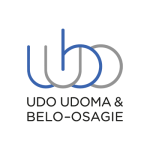In this article, Jumoke Lambo, Folake Elias-Adebowale, Yinka Edu, Ozofu ‘Latunde Ogiemudia, Nicholas Okafor and Joseph Eimunjeze share their perspective on corporate restructuring, private equity and M&A, banking and lending regulations, project finance, and capital markets in Nigeria.
Corporate restructuring update
Issuing unissued share capital: a race against time
The Minister of Industry, Trade and Investment, through the Corporate Affairs Commission (CAC) issued a Notice dated April 16 2021, extending the period within which existing Nigerian companies with unissued share capital were to fully issue their share capital in accordance with section 124 of the Companies and Allied Matters Act 2020 (hereafter referred to as CAMA 2020 or the Act).
Paragraph 13 of the Companies Regulations 2021 (the Regulations) had previously indicated a deadline of June 30 2021, prior to the Notice extending the deadline to December 31 2022.
This update provides some insight into the provisions of CAMA 2020 and the Notice relating to the requirement for the issuance of the entire share capital of Nigerian companies.
Unissued share capital under CAMA 2020
CAMA 2020 came into effect on August 7 2020 and repealed the Companies and Allied Matters Act (Chapter C20) Laws of the Federation of Nigeria 2004. Two of the changes introduced in CAMA 2020 were the abolishment of the concept of authorised share capital and the insertion of the concept of share capital defined as “the issued share capital of a company at any given time”.
Under CAMA 2020, the memorandum of a company having shares must state the amount of share capital which shall not at any time be less than the minimum issued share capital. The minimum issued share capital is NGN 100,000 (c.$240) for private companies, and NGN 2,000,000 for public companies. In addition, at least 25% of a company’s issued share capital must be paid up.
Compliance directives
Where the issued share capital of an existing company is less than the minimum issued share capital, the company shall, no later than six months after the commencement of the Act, issue shares up to an amount not less than the minimum issued share capital.
A defaulting company is:
Liable for a fine as the CAC may prescribe by regulation; and
Liable for a daily default fine as the CAC shall specify by regulation for every day that the default continues. The CAC has specified that the company and officers of the company shall be liable for a daily default penalty of NGN 500 for every day that the default continues.
Where a portion of a company’s share capital remains unissued after December 31 2022, that portion shall not be recognised as forming part of the company’s share capital until the entire share capital is fully issued or reduced accordingly.
In conclusion, companies with unissued share capital should utilise the extended period to comply with Section 124 of CAMA 2020. They may choose to issue their unissued shares through offers for subscription, rights issue, bonus issue, or private placements. Companies that do not want to issue their unissued shares may choose to reduce their share capital by extinguishing unissued shares.
The author is grateful to Olubukola Olonade-Agaga, Kunle Durosinmi-Etti, Ayomikun Ola- Kenny and Markanthony Ezeoha for their assistance with the Corporate Restructuring update.
Private equity and M&A
Fiscal developments
A. Removal of CGT exemption for share transfers
Gains made from the sale of Nigerian company shares have, historically, been exempt from capital gains tax (CGT). The Finance Act 2021 (FA 2021) imposes a CGT rate of 10% on gains accruing on the disposal of such shares, except where:
Sale proceeds are reinvested in shares of the same or any other Nigerian company within the same year of assessment; or
Total proceeds from the share sale are less than NGN 100 million in any consecutive 12-month period; or
Shares are transferred between an approved borrower and lender in a regulated securities lending transaction under the Companies Income Tax Act 2004 (as amended).
B. Amended definition of Real Estate Investment Companies (REICs)
The FA 2021 expands the definition of a REIC to include Real Estate Investment Trusts (REITs) approved by the Securities and Exchange Commission (SEC) as real estate investment schemes. The amendment clarifies the previously unclear and inefficient taxing of REITs by exempting dividends and rental income received by REICs on behalf of their shareholders from tax, provided that:
A minimum of 75% of dividend and rental income is distributed; and
Such distribution is made within 12 months of the end of the financial year in which the dividend or rental income was earned.
REICs are, however, required to deduct withholding tax (WHT) before redistributing dividend and rental income to shareholders.
C. Franked interest income for unit trusts
Under the FA 2021, corporate unit trust holders will only be subject to 10% WHT as final tax on interest received from investments made in a collective investment scheme.
D. WHT on dividends, interest and royalties
With effect from July 1 2022, a 10% WHT rate will apply to dividends, interest, and royalties payable to corporate residents of treaty countries other than entities resident in South Africa, China, Spain, Singapore and Sweden, which will continue to enjoy the reduced 7.5% WHT rate.
Implementation of CAMA 2020
A. Treatment of unissued share capital
CAMA 2020 eliminates the concept of 'authorised share capital'. As a result, the share capital of Nigerian companies must now only comprise issued shares. CAMA 2020 does not clarify how companies should deal with unissued share capital held as part of authorised share capital under the repealed CAMA 1990. The CAC has directed that all companies with unissued shares in their share capital must issue such shares by December 31, 2022.
Some Nigerian companies have taken steps to issue their unissued share capital, while others are opting to cancel unissued shares. The provisions of CAMA 1990 (section 100 (1)(d)) that had expressly permitted the cancellation of unissued shares were omitted from CAMA 2020, and CAMA 2020 provisions that prescribe share capital reduction via a Federal High Court sanction do not appear to apply to unissued shares.
The CAC has recommended that unissued shares be cancelled by ordinary or special resolution (mirroring the resolution by which the shares were originally created) and has stated that companies do not have to obtain a court order or to comply with the CAMA 2020 process for reducing share capital. The resolutions approving the cancellation of the unissued shares and the consequential amendment of the company’s memorandum of association must, however, be filed with the CAC.
B. Mandatory preemptive rights
Section 142(1) of the CAMA 2020 mandates pre-emptive rights for existing shareholders of public and private companies, which must first offer new shares to existing shareholders before any such shares may be allotted to any other person. The statute offers no exceptions to this requirement, and so companies will need to consider this carefully when structuring transactions involving the issuance of new shares.
Private company shareholders may individually waive pre-emptive rights, but section 142 means that, in public companies, any new share issuance - whether a public offer or a private placement - must be preceded by an offer to existing shareholders, since as a practical matter, all shareholders might not be able to waive their rights individually. This has implications for public companies with respect to the timing and costs associated with share offers. It might be possible for the shareholders to approve share offers notwithstanding the provisions of section 142, but such offers may be open to challenge.
Fund structuring: LLP and LP options
CAMA 2020 introduced a new framework for limited partnerships (LPs) and limited liability partnerships (LLPs) across Nigeria. The LLP is a legal person that can sue and be sued, hold property in its own name and lawfully do all other acts as any other legal person. LPs do not have the same limited liability status but are permitted to have a general partner who is liable for the partnership’s debts and obligations, while limited partners enjoy limited liability. Key features of each partnership option are outlined below.
Consideration | LLP | LP |
Ability to hold property in its own name: | An LLP can acquire, own, hold and develop or dispose of property, and can sue and be sued in their name. | LPs cannot hold assets in their own name. Assets are held collectively by the partners or by the GP for the partnership. |
Number of partners | No limit | An LP is only permitted to have 20 partners. |
Tax Efficiency | LLPs may not be tax efficient because it is unlikely that the Federal Inland Revenue Service (FIRS) will agree to treat an LLP as a pass-through vehicle. | LPs are taxed as pass-through vehicles. The income earned by the partnership will only be taxed in the hands of the respective partners. This minimises the tax exposure. |
Merger control
A. FCCPC reviews the applicable fees for merger notifications
On August 6 2021, the Federal Competition and Consumer Protection Commission (FCCPC) issued the Merger Review (Amended) Regulations 2021 (MRG 2021) which revised the merger notification fees set out under Schedule 1 of the Merger Review Regulations 2020 (MRG 2020).
The table below compares the merger notification fees under the MRG 2020 with the revised fees prescribed by the MRG 2021. The overall effect of the changes introduced by the MRG 2021 is to increase transaction costs for parties.
No. | Threshold | MRG 2020 based on the last combined annual turnover | MRG 2021 based on the last combined annual turnover | MRG 2020 based on the last combined annual turnover | MRG 2021 based on the last combined annual turnover | Impact of MRG 2021 |
1. | First NGN 500 million | 0.3% | 0.45% | 0.3% | 0.45% | Fees increased from 0.3% to 0.45% |
2. | Next NGN 500 million | 0.225% | 0.40% | 0.225% | 0.40% | Fees increased from 0.225 % to 0.40% |
3. | Any sum thereafter | 0.15% | 0.35% | 0.75% | 0.35% | Fees on combined turnover reduced from 0.75 % to 0.35%. However, fees on considerati on increased from 0.15 % to 0.35% |
The authors are grateful to Etido David, Bond Eke-Okpara, Tobechi Nwokocha, Chris Oke, Ifunanya Nwafor, Uche Ojimba and Toluwalope Adedokun for their assistance with the private equity and M&A update.
Banking, lending and regulatory matters
Grant of foreign loans to Nigerian banks: key developments
In 2014, to mitigate the risks of Nigerian banks defaulting on their foreign currency loans, the Central Bank of Nigeria (CBN) issued regulations (the 2014 Regulations) geared towards the management of the foreign exchange (FX) risks of Nigerian banks. The 2014 Regulations required any Nigerian bank that intends to procure FX loans for on-lending to meet the following criteria:
To borrow and lend in the same currency;
To ensure that its aggregate FX borrowing (excluding group and inter-bank borrowing) does not exceed 75% of their shareholders funds unimpaired by losses; and
In relation to Eurobonds, any call for early redemption must only be by the issuer, subject to the approval of the CBN.
Following this, the devaluation of the Nigerian Naira in 2017, triggered by a plunge in crude oil prices, caused some banks to breach the regulatory limit for FX loans. That led the CBN, in a subsequent regulation (2017 Regulations), to increase the limit from 75% to 125% of shareholders’ funds unimpaired by losses.
The 2017 Regulations also required banks to introduce certain risk mitigation strategies, including that all FX borrowings must be subordinated and prepayment must be only at the instance of the borrower, subject to the CBN’s approval. In addition, all debts (except trade lines) must have a minimum tenure of five years.
The CBN required banks to implement these strategies in obtaining FX loans. The difficulties that resulted from the implementation of the 2017 Regulations caused an uproar which led to the CBN relaxing the implementation of the regulation. As a result, a practice developed thereafter with the banks seeking a waiver of the requirements from the CBN which the CBN consistently granted. However, things have significantly changed in the implementation of the regulation.
The impact of the Covid-19 pandemic and the fall in crude oil prices in 2019/2020 led to a decline in Nigeria's FX reserves which, again, resulted in the devaluation of the Naira. As a result, the CBN has become stricter with the enforcement of its regulations, in particular those relating to FX including the 2017 Regulations, by demanding compliance and creating less room for exceptions. Presently, the CBN’s responses to applications for a waiver from these requirements would either be in negative or come with very stringent conditions. Nigerian banks are, therefore, seeking creative solutions to deal with these issues.
In addition, with the coming into effect of the Banking and Other Financial Institutions Act 2020 (BOFIA), certain provisions were introduced which would impact the enforcement of security created over shares held in a bank or other financial institution. Section 7(1) of the BOFIA now requires the prior written consent of the CBN in relation to an agreement or an arrangement by a Nigerian bank or other financial institution that would result in the transfer of a ‘significant shareholding’ in that bank.
Although the BOFIA does not define the term significant shareholding, it defines a ‘significant shareholder’ as, among other things, a person or an entity who beneficially owns 5% or more of the paid-up share capital of a bank or other financial institution. The BOFIA provides that any transaction entered into in contravention of this provision is void, and the transfer ineffectual unless the transaction is subsequently ratified in writing by the CBN. The implication of this provision, therefore, is that any enforcement of security over the shares held in a bank or other financial institution that will result in more than 5% of the paid-up share capital of that institution being transferred would require the prior approval of the CBN, otherwise it will be void and ineffectual.
Project finance update
Trends
Nigeria witnessed many reforms in the energy and infrastructure space within the period under review, to aid sustainable energy and infrastructure development.
Numerous significant projects are in development across various sectors of the Nigerian economy. The BUA Group’s cement factory in Sokoto was recently commissioned, the Nigeria LNG Limited is developing its sixth and seventh trains, several road networks have been assigned under concession to the private sector, and many rail projects have been completed, with new trains deployed for service on those rail lines. The Geometric Power Project in Aba raised completion funding from new equity investors and Afrexim Bank and has mobilised contractors back to the site.
Laws have also introduced key regulatory and fiscal changes that affect project developments in Nigeria. The Petroleum Industry Act 2021 (PIA) has become the principal legislation governing the entire value chain of the Nigerian oil and gas industry, introducing key changes such as the establishment of the Midstream and Downstream Gas Infrastructure Fund, to be funded from a 0.5% levy on the wholesale price of petroleum products and natural gas produced and sold in Nigeria; and the creation of new licences and regulatory bodies.
Likewise, the Climate Change Act 2021 (CCA) provides a structure for achieving low greenhouse gas emissions and sustainable economic development by ensuring that private and public entities comply with stated climate change strategies and targets provided in the CCA and National Climate Change Action Plan. The CCA also introduced a carbon tax, requires private entities that meet certain criteria to institute measures to achieve the annual emission reduction targets, imposes fines for non-compliance with the provisions of the CCA, and will have impacts on infrastructure projects, especially in the electricity and manufacturing sectors.
Nigeria also introduced a few taxes under the PIA and Finance Acts, such as the introduction of a hydrocarbon tax under the PIA, and the increase in VAT and tertiary education tax to 7.5% and 2.5% respectively. These changes will affect the cost of goods and services and the cost of infrastructure projects. Under the VAT (Modification) Order 2021, certain petroleum and renewable energy products are exempt from VAT.
As part of the government’s intervention to increase liquidity for infrastructure projects in Nigeria, the Infrastructure Corporation of Nigeria Limited (InfraCorp) was established in 2021 to increase investments in Nigeria’s infrastructure sector. InfraCorp has NGN 15 billion in assets and capital and is jointly owned by the CBN, the African Finance Corporation (AFC) and the Nigerian Sovereign Investment Authority (NSIA). InfraCorp will receive funding from the CBN, NSIA, pension funds and private-sector financiers to fund projects.
In September 2021, the CBN announced that the Nigerian International Financial Centre will be established to act as a gateway for funds and investments into the country, to be driven by technology and payment systems infrastructure, which will operate as a 24-hour financial centre to complement the London, New York, and Singapore financial hubs.
Outlook
The outlook for projects in Nigeria is positive, especially if the CBN is able to address the twin issues of (a) the availability of foreign exchange to enable investors to repatriate profits, and (b) having a single foreign exchange regime that applies to all investors in the market.
The author is grateful to Victor Samuel, Chisom Okolie, Godson Iwuozo and Dumebi Anike-Nweze for their assistance with the banking & finance and project finance updates.
Capital markets update
The SEC has truly taken the decision to embrace innovation: from its general approach to digitalisation and ICT, to getting ahead of new trends. In recent times it has introduced rules on crowdfunding and robo-advisors, created a new digital sub-broker licence for platforms offering securities, and has set up an innovation hub, which is a scheme similar to a sandbox where it can allow parties to test-run innovative structures and products, which it will monitor at close quarters while managing the risk to the public. The most recent development is the publication of the long-awaited rules on digital assets.
Prior to this, in 2020, the SEC had published a statement of intention to regulate digital assets. Shortly after that, its fellow regulator in the Nigerian financial system, the CBN, took a very different approach to cryptocurrency by prohibiting banks and other financial institutions from facilitating cryptocurrency transactions in Nigeria. It was therefore unclear whether the SEC would proceed with its stated objective in relation to digital assets, but in May 2022, the SEC’s rules on digital assets were finally issued by the SEC.
The SEC rules on Issuance, Offering Platforms and Custody of Digital Assets (Rules) introduce regulatory principles guiding the issuance of digital assets (an innovative option for startups and small- and medium-sized enterprises), and sets out the approval requirements for participants intending to issue digital assets as securities. The Rules define a digital asset as “a digital token that represents assets such as debt or equity claim on the issuer”. The Rules are divided into five parts, relating to:
The issuance of Digital Assets as Securities (DAS Rules);
The registration of Digital Asset Offering Platforms;
The registration of Digital Asset Custodians;
Virtual Assets Service Providers; and
Digital Assets Exchanges.
The DAS Rules apply to issuers seeking to raise capital from the public through the offering of digital assets including Initial Coin Offerings and other distributed ledger technology offers. Under these rules, prior to offering digital assets to the public within Nigeria or to Nigerians, an initial assessment form and a draft whitepaper must be filed with the SEC.
The Rules introduce various mechanisms intended to protect investors, these include requiring a custodian to hold the assets and imposing investment limits to protect investors. Also, the maximum amount that a retail investor may invest in a Digital Asset Offering is NGN 200,000, with a total combined investment limit in such assets of NGN 2,000,000 within a 12-month period. It also seeks to ensure that the interests of the promoters and investors are aligned in terms of being invested in the success of the endeavour by requiring the issuer’s directors and senior management to hold at least 50% of the equity.
Last year Statista ranked Nigeria as the best country (per capita) for Crypto-adoption, so while these rules do not specifically apply to cryptocurrency, there is much excitement over them and it is hoped that it indicates a change of attitude to such assets.
The author is grateful to Lisa Esamah, Itoro Etim and Tomisin Taiwo for their assistance with the Capital Markets update.







